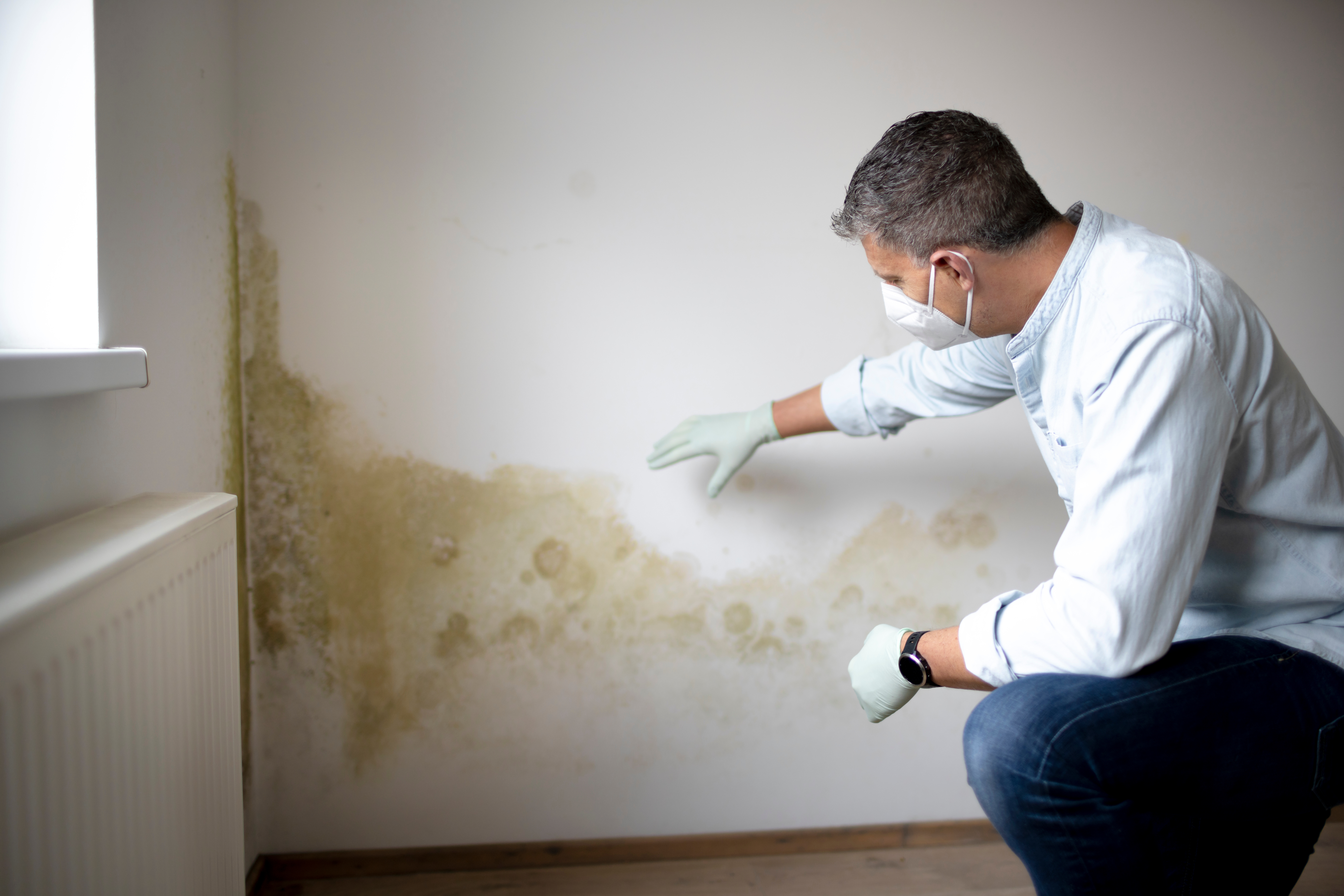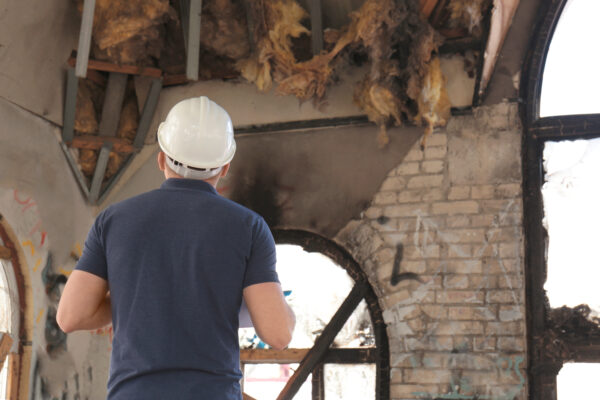I thought it would be useful to pass on some knowledge that will empower you in the event disaster strikes and you need to claim on your buildings insurance policy. You might wonder why this is important? Unless you’ve had a previous claim, you are unlikely to know what stress this could cause and how long it could take you to achieve settlement.
Ensure your policy is adequate and you are meeting the conditions
Now I know you cannot predict when you will be making a claim however there is certainly some advice, I can give you to ensure that in the event you do, you have met the policy conditions and also got adequate cover.
If you have your policy schedule and wording to hand, I would check a few really important items. Firstly, ensure your property rebuild sum assured is adequate. This is the cost to rebuild your property including demolition, architect and other professional fees. It is NOT what you paid for the property. If you have a recent survey, then it’s likely to be detailed there. If not visit www.abi.bcis.co.uk and you can use their calculator. If your rebuild sum assured isn’t not adequate, then the insurance company will consider you self-insured for the shortfall and apply average on your claim settlement leaving you at a financial loss.
Check your statement of facts to ensure the information when you took the policy is correct. Undisclosed criminal convictions, county court judgements could see a claim refused. It doesn’t need to be as serious as that though, if the number of occupants living at the property, or if your property is let to a none professional tenant for example, it could also see the claim refused.
This is important for landlords or people who spend continued periods of time away from the property. Check the unoccupancy clause and ensure that if the property is vacant that you follow the conditions. For example, if your property is empty over the winter months, your insurance company may expect you to isolate the water supply and drain the system or leave the heating on at an ambient temperature, returning home to a property that’s had an ongoing leak for days and weeks is hard enough to deal with but to be told you have not the policy conditions and your claims is repudiated is an even more bitter pill to swallow.
I could go on but at this point I would suggest you read your policy wording in full and ensure you comply.

Managing your claim
I am going to use an escape of water claim as my example purely because it’s by far most common peril to claimed on. Gone are the days of the one bathroom house with a gas fire to heat and a small number of appliances using your water supply. New houses often have 3 bathrooms, pipework hidden in walls and floor voids, we’ve got washing machines, dishwashers, underfloor heating and unfortunately supplying all this high-pressured water is cheap plastic fittings instead of copper piping which seems to be a thing of the past. All this means the chances of having a leak have increased massively.
When lodging the claim, I would refer to your policy wording which states how the insurance company can settle the claim, more often than not they settle on one of 3 ways. Cash, Repair or Replace. The latter is rare so we will discuss the first two. “Cash settlement” in a nutshell means the insurance company will want you to go and provide quotes from the open market and they will settle on that basis. “Repair” means they will provide their own contractors to take care of the restoration and reinstatement work.
My advice to you if you do not have the time, building knowledge and skills to negotiate then either instruct a loss assessor like us or ask the insurance company to repair the property as per their policy wording. The insurance company may refuse to repair which is fine, they can do so. Their contractors may be overwhelmed and unable to carry out the work in a suitable timeframe. It’s important to note at this stage that if they refuse to offer you their contractors and want to cash settle then it is not treating you fairly if they settle the claim based on what it could have cost them to do it. They often ignore this fact.
One thing I would push is for them to send out one of their restoration contractors to ascertain the true extent of the water damage. Do not rely on things drying out naturally, beginning reinstatement works when the property is still wet will come back to haunt you.
It’s not often the insurance would refuse to do this at least. For more information on “The importance of professionally dealing with water damage” visit www.reinstate.uk where we have a blog on this subject.
Until you know the extent of the damage you will not know what work needs to be done to rectify, once you are professionally informed then I would follow the below format.
- Check your policy wording for items such as “Matching of items” most policy have a clause that they will only pay for the damaged item that forms part of a set. For example if you have a leak and it damages your kitchen end panels and plinths and to replace them means they won’t match you need to know the cost of replacing all matching items and push for a 50% contribution from the insurance company which they usually agree to. If you do have full matching of items cover then the insurance will pay for it all. Matching of items includes tiling, where the insurance company may only pay to re tile one wall even if the other walls have the same tiles.
- Arrange for 2 principal contractors to attend to quote – Insurance companies use larger principal firms. They project manage each contractor and are responsible for the health and safety. They will ensure the job is complete with very little input from yourself. If you arrange quotes from sub-contractors all you will be doing is creating more work for yourself. For example. A leak from a bathroom that damages the ceiling below and the flooring. You are likely to need a plaster, electrician, decorator, joiner for the flooring as a minimum. If you get quotes from each sub-contractor, you will need 8 in total. You will then have to project manage these trades once approved. Use sites such as www.ratedpeople.com or www.mybuilder.com to find vetted trades with good feedback from previous customers.
- Make sure the quotes are on a like for like basis as this is how the insurance company settles claims. The quotes also need to be broken down generally into labour and materials.
- Do not allow the insurance company to offer a reduced settlement offer based on what they can do it for. They’ve opted to cash settle and they cannot scrutinise against their own schedule of rates.
- If they appoint a representative to validate the claim and costs. Check that they are an FCA regulated firm who are members of the Chartered Institute of Loss Adjusters. Insurance companies often send out “surveyors” (not qualified building surveyors) who will not understand policy coverage and don’t have to comply with “treating customers fairly” policies issued by the FCA.
- Don’t be afraid to complain if they are taking too much time, they have a duty to deal with your complaint quickly.
- Ensure you are compensated for electrical usage for drying equipment, also if you are left without use of your kitchen you are entitled to disturbance allowance which is usually £10 per day per adult. If you have health issues, then alternative accommodation while works are ongoing should be requested.
- Rather than settle the claim before work starts, leave the claim open and request an interim payment to pay your builders. We recommend you do not settle until the works are complete in the event a variation on the works is found. You shouldn’t be at a financial loss if your builder finds extra work required.
- Do not pay your builder in full until work is complete to your satisfaction and ensure any certificates are handed over including guarantees.
I hope the above is helpful.
If you do not want to manage your own claim or reach an impasse with your insurance company, then I would highly recommend you appoint a loss assessor.

